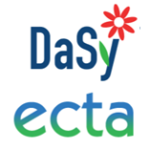The presenters covered concepts relevant to family outcome surveys, including methods such as stratified sampling, the importance of sample size, representativeness, and response rates. Procedures for weighting responses and writing sampling plans were also discussed.
Tag Archives: Age 0-5
IDEA Data Systems: What States Have and What They Need
The presenters highlighted 2023 State of the States Survey data and findings from more than 50 IDEA Part C and B 619 programs. Data systems and their links to other programs are complex; learn more about how early childhood IDEA programs manage their data, link to other programs, and plan for the future.
Create Positive Change Through Data Culture and Systems Thinking
DaSy, ECTA, and the Waters Center for Systems Thinking teamed with four states to improve their Part C/619 programs by increasing the knowledge and skills needed to improve data culture and become systems thinkers.
Workshop: Analysis Paralysis? A Multi-Layered Approach to Data Use and Decision-Making
In this workshop from IDIO 2024, DaSy/ECTA staff guided participants through a multi-layered approach to analyzing data at a deeper level than normal.
New to Child Outcomes Measurement?
In this IDIO 2024 presentation, DaSy/ECTA staff cover the basics for child outcomes measurement and reporting, including an overview of how they were developed, what the outcomes are, how the indicators are calculated, what approaches to measurement states use, what the national results look like, how to consider child outcomes data quality, and where to access additional resources.
DaSy Data Inquiry Cycle: Equity Considerations at Every Stage
In this workshop, the presenters shared the new DaSy Data Inquiry Cycle resource, which is a sequence of stages across planning and design for data collection, collecting data, data analysis and interpretation, reporting, dissemination, and taking action.
Applying Equity to Your Data
In this session, participants discussed equity and how it applies to Part C and Part B 619 staffs work with data, learned about the data inquiry cycle stages and key considerations when applying it, how to leverage critical questions and identify next steps state staff can take to improve their data inquiry cycle.
Joint Dear Colleague Letter on Early Hearing Detection and Intervention and Part C Programs (Aug. 5, 2024)
This letter was jointly developed by offices within the U.S. Department of Health and Human Services and the U.S Department of Education to support increased collaboration between State Early Hearing Detection and Intervention programs and IDEA Part C early intervention programs.
Examining Data to Improve Child Find Systems Working Series

Materials now available. Questioning where to start with or how to improve your child find data? DaSy and ECTA hosted this three-part online working series that started with the basic reporting requirements related to child find for Part C and Part B 619
Celebrating the 34th Anniversary of ADA

On July 26, we celebrate the 34th anniversary of the Americans with Disabilities Act (ADA). At the DaSy Center, we are deeply committed to the principles of the ADA and strive to eliminate barriers and promote full inclusion in all aspects of society.

